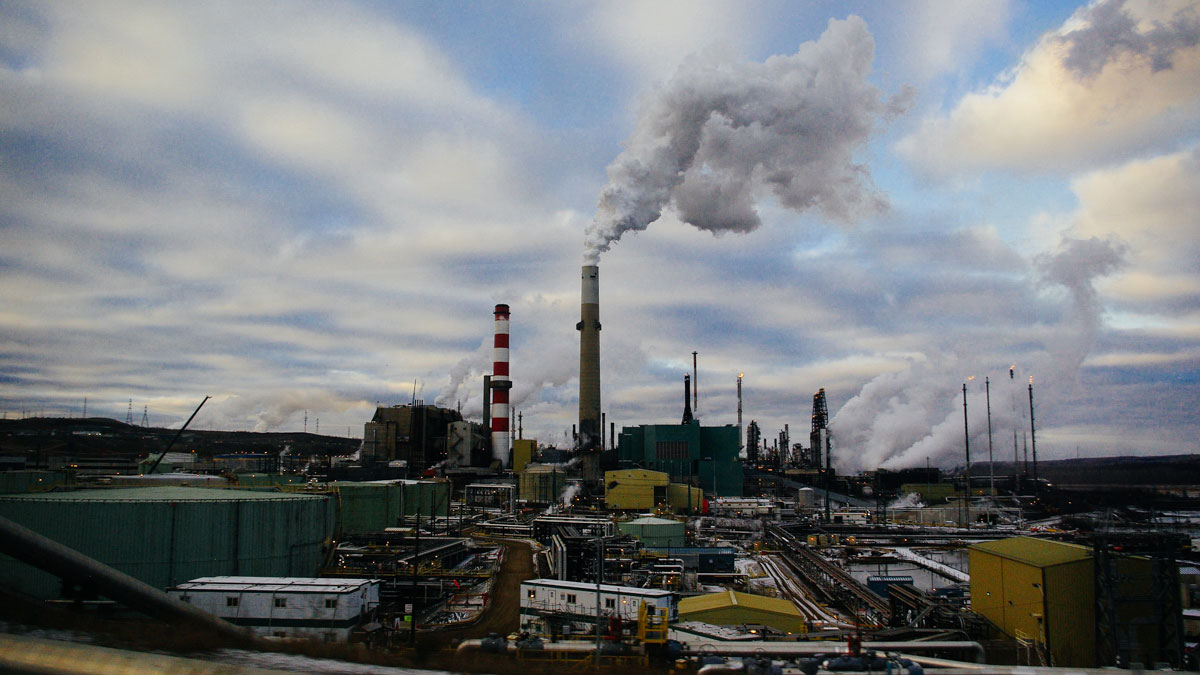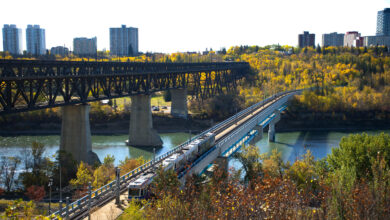 Christina Varvis
Christina VarvisMay 5, 2015: everyone in Alberta from Fort Vermillion to Coutts stood flabbergasted as Rachel Notley’s NDP ended the Progressive Conservative’s reign of error.
Here are some things we’re looking forward to and things we’d rather not have happen.
Lisa Szabo
Looking at it as a student, the NDP platform is a beautiful thing. Promises to reverse “the reckless Prentice cuts” to education and reinstate a “tuition freeze” are like money in my pocket — and who doesn’t want better healthcare? But considering our new government in light of looming graduation and ejection from my cozy University bubble into the corporate world, I see some of the problems that an NDP government poses.
Call me a capitalist, but I enjoy the benefits and freedoms of a free-market economy. Money is a remarkable motivator, and the drive to succeed financially is the proverbial grease in the economic gears. But the more money that is sucked from the economy — like in higher income and business taxes — and fed into social programs, the less wealth our province will produce. Despite the NDP assurances to create more jobs, increase minimum wage and “actively support economic diversification”, our new government’s plan to stimulate the economy seems vague at best. The increase in business tax, while a good move in theory, will only further limit economic growth at this time since companies already struggling to keep employees paid and consumers paying will likely increase prices — thereby decreasing consumerism. If we want the economy to improve, I hate to say it, but we need to spend.
The NDP’s plan to reverse cuts to education and healthcare is obviously preferable to Prentice’s clear-cutting of public services, but where is the province going to get all of this extra money from? The platform doesn’t specify. I am all for improving healthcare and education, but that’s a discussion best saved for the other side of this fiscal disaster.
Nathan Fung
I worry that the old ‘the New Democratic Party are anti-business and they will hurt the economy’ line is far from dead and that it could still haunt the new government like a zombie.
Even after the election, we could see more hostility towards the NDP government from business leaders, a continuation of the fearmongering that we saw towards the end of the campaign, which included public statements from business leaders such as Doug Goss, Chairman of the University of Alberta Board of Governors. The NDP’s plans to review Alberta’s oil royalties and to raise corporate taxes from 10 to 12%, continues to give their opponents something to freak out and whine about.
The fight to control this narrative doesn’t necessarily end with the election and Notley’s government will have to continue to shape the public message in its favor. So far, it seems that Notley is doing a good job of that. Already our new premier has presented herself as being open to collaborate with the business sector and seems to be making allies with some in the energy industry such as Encana CEO Doug Suttles. If this keeps up in the future, it may not be much to worry about and those few who still try to slam the NDP will only end up hurting themselves more.
Josh Greschner
I voted for the NDP mostly out of ignorance. I only really cared about tuition and the NDP promised to freeze it, making education more affordable compared to the other right-leaning parties that wouldn’t seem to mind tuition costs rise to American levels.
Now that the NDP is in office, I hope they get rid of some platform points, such as raising the minimum wage to $15/hour by 2018. $15/hour has been thrown around in the U.S. and seems to have trickled up north of the border.
As a basic economic rule, if the minimum wage increases, businesses must allocate funds to wages, which generally causes unemployment because less workers are hired overall. The counterargument is that people working minimum wage jobs don’t make enough to live in Alberta.
Seattle is in the process of implementing its own minimum wage because costs of living in the city are 21% higher than the national average. But unlike the NDP who intend to raise it to $15 by 2018 for everyone, Seattle will do so for businesses with over 500 employees. Businesses with less than 500 employees will have three more years to adjust and will pay the $15/hour minimum wage by 2021. A recent NPR article reports the new budgetary struggles endured by small businesses.
One wonders if such a high minimum wage is even needed in Alberta since we haven’t seen the protests by minimum wage workers like those in New York, Chicago and Detroit. The legal U.S. minimum wage is very low by developed country’s standards at $7.25/hour (whereas New York State’s is $8.75). Alberta is currently much better off at $10.20/hour (although it is $9.20 for liquor servers.) One also wonders if the American $15/hour is an intentionally unrealistic figure from which to bargain down.
In short, Rachel Notley’s current proposal is too much, too soon.





Just how free is oilès free ride in Alberta
Oil has had a free ride in Alberta for the past 30 years. Notley was hired by the electorate to fix that! Albertan are paying the oil industry to take the resource from the province; it is not even a break even deal.
Our last royalty was 16% taken in Canadian funds on a US priced product. This lowly royalty was taken from us during Ron Liepert’s rule and amongst great fanfare the Conservatives celebrated a 15% carbon tax placed on the oil sands. Where did the other 15% go to-
We now collect zero as royalty revenue. Ron Liepert also said Albertans have to get away from their feeling of entitlement; tighten up your belts!
We pay for their transmission lines built specifically for them to export their electricity to the US! You may recall Syncrude getting caught up in a major lawsuit with California for overcharging them on electricity (transmission via BC). Montana already has the receiving lines in place in Alberta to accept the new DC current from Alberta.
This is a trick is in the jurisdiction. If Alberta crosses a border with a power line, the Fed has a say in the pricing of the electricity. So, Montana crosses into Canada avoiding this.
Another trick on the lines. DC power lines are larger in diameter than the AC lines. This is because DC travels on the outside of the line building no resistance (reactance itès called in power transmission) This means the DC can be finitely controlled; no waste generation. Producers expect a 30% increase in profit DC over AC.
And, both AC and DC can be moved in the same lines simultaneously should the need be required.
We pay for oils roads, their water! As I said on the onset, we are actually paying them to take the resource from the province.